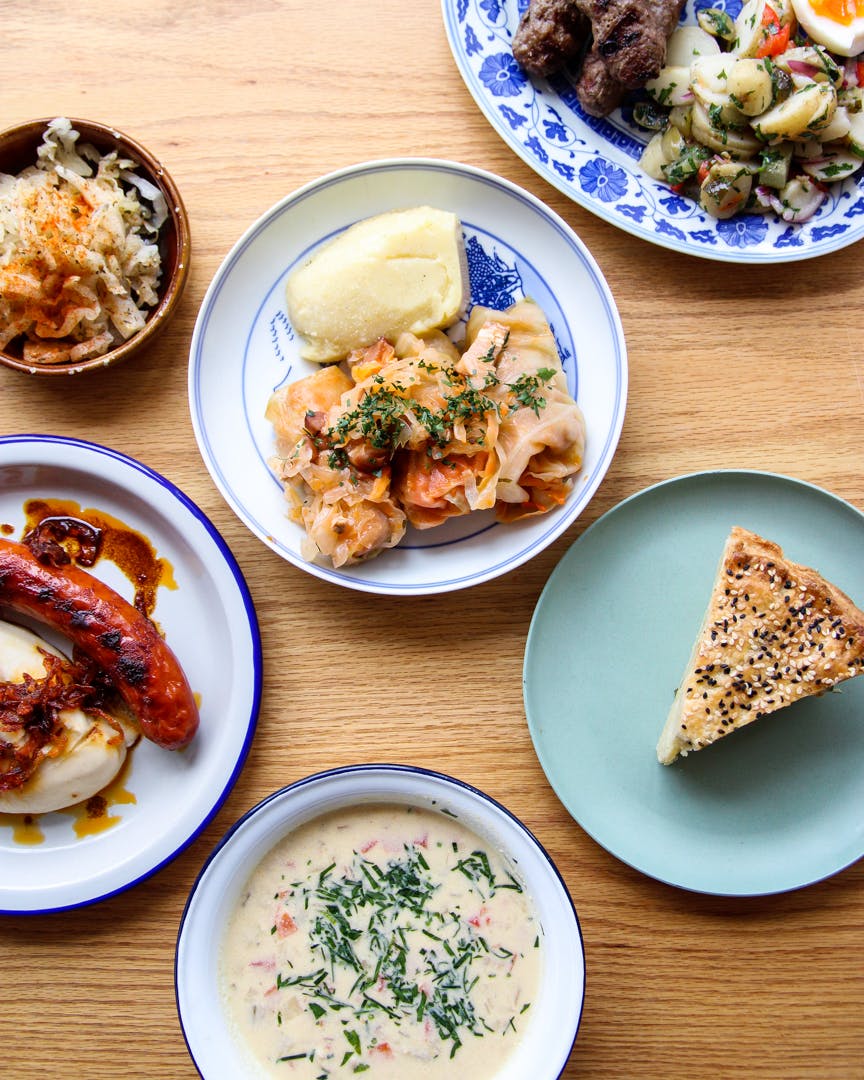
Go Canteen is a Toronto-based company that connects food entrepreneurs with the space and resources to bring their culinary dreams to life.
Throughout the pandemic, new food concepts have been sprouting at every corner of Toronto. With many people out of work, turning to starting up a food business became a common occurrence––and has served the Toronto community well in the process.
One of the many challenges of the food industry though, is the difficulty of finding a true home to incubate, innovate and create your idea. Without previous connections to people in the industry or a wad of cash to cover upfront costs, finding a space to bring the project to life is next to impossible.
Bradon Levalds, the mind behind Go Canteen, wanted to make this obstacle as easy to navigate as possible.
“The food industry is super risky and capital intensive,” said Levalds. “What we try to do is provide options for people [by] working with a variety of companies and businesses that have under-utilized kitchen spaces.”
Go Canteen came to fruition like many new businesses that were birthed in the pandemic––pivoting. Levalds comes from the world of experiential marketing and had run a business that recruited and placed workers at pop-up events. Now, Levalds is playing the middle-man once again, this time for an industry that has been erupting with new businesses this past year.
The goal is simply to provide options to people, and make finding kitchen space more accessible. According to Levalds, this can be done by bridging the gap between entrepreneurs and owners of available kitchen space.
The company partners with restaurant owners across the city that have kitchen space available to lend out. It’s a way for owners to gain a little more revenue through utilizing their unused kitchen spaces while also allowing entrepreneurs to bring a project to life.
It doesn’t stop there either. Levalds explains the long-term goals of the company is to eventually own and operate their own dedicated kitchen spaces and have a full-fledged hospitality group working to help build the businesses of food entrepreneurs.
More recently though, Go Canteen has focused on assisting entrepreneurs build their online platforms, which goes hand-in-hand in today’s food industry. Levalds wants to be more than just a middle man connecting one business to another––he wants to be a part of growing those businesses by giving them the support and resources they need to succeed.
“Our perspective is that when you can give people the tools and equipment to get going, get up and running, really great things can happen,” said Levalds.
This belief system is derivative of Shopify’s model, which Levalds admires as a platform that allows entrepreneurs to ‘create their life.'
Most recently, Go Canteen helped bring Mamaliga––a Romanian-inspired pop-up by chef Haan Palcu-Chang––to life by building a ‘virtual brand.' According to Levalds, the virtual image is similarly important to just finding a space and cooking the food, especially given the new look of the restaurant industry after the pandemic. With people staying home for extended amounts of time, social media will likely be the first place they learn of these new restaurants, and Go Canteen helps make that first impression memorable.

Levalds says that food was something he wanted to explore––not necessarily as a restaurant or vendor, but to connect people with the food they love while helping to grow businesses.
“Food brings culture together, it brings people together, it allows people to really pause and unwind and celebrate too,” he said. “How do we bring that closer to people and allow them to tell their story through food?”
While they’ve had a lot of interest from food entrepreneurs since launching, Levalds says the process of finding vendors the right space is time consuming and challenging, mostly because he really values the power and love that goes towards a chef’s food.
Levalds says their system is intensive for a reason––they don’t allow food entrepreneurs to waltz in, view some potential spaces and sign a lease. Go Canteen is much more involved in the process to ensure that everything is in place for the business to succeed.
“If it’s a shared space, for instance, there needs to be a cultural fit. That person needs to be able to get along with the other group of people. They need to mesh well with each other, and that takes a different approach,” said Levalds.
Instead of finding businesses a space to a work from, Go Canteen has shifted to offer a more cumulative, rounded-out program that provides sprouting food entrepreneurs with top-down assistance from finding a space, to designing logos and building a brand. Levalds says that while there are a lot of unused kitchen spaces in the city right now, especially more as Toronto continues into its third wave of lockdown, the process of legally operating out of a space can become quite difficult.
While they can't help every entrepreneur find a space, what they offer on top is the tools and expertise to bring a business to the next level and work their way up to success.
"What we've found overall is that these people need mentorship, they need guidance as far as how do [they] take this concept that [they're] building out of [their] house and actually make it a viable business?" said Levalds.
While starting a food business in a pandemic has become increasingly popular, it comes with many risks and drawbacks if not done properly and without help of others in the field. Go Canteen wants to make that transition as simple and seamless as possible, because while it's a difficult task to break into the industry, it can be one of the most fulfilling feelings to make your dream into a success.
"It's one of the hardest industries to actually make it in, but it's one of the most passion-driven industries to be in."









